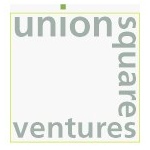![[326/365] Lottery Money]()
(Another post in my series on what educators should know about the business of (ed-)tech.)
I confess: before I became a technology journalist, I’d never thought twice about the funding process for startups. Sure, I’d heard plenty about investors in general — that Warren Buffett fellow, for example; but I knew nothing about the workings of venture capital — how technology startups received investment, what that investment meant, who the investors were, and so on. I’m guessing that many folks are in the same boat. Hence this post…
What is venture capital?
Unlike other businesses that rely on bank loans in order to fund their growth and expansion, technology startups rely on a different investment model.
At their early stages, many startups opt for “seed funding,” which as the name suggests gives them the seed to get started and growing. That funding can come from “friends and family” or, more likely, from angel investors -- wealthy individuals who invest a “small” amount of initial financial capital. Seed investment is generally under a million dollars.
It has become a lot cheaper in recent years to launch a technology startup, due to cloud computing (low or no infrastructure costs) and free, open source software. But even with those lower initial costs, it often takes technology startups more than that first seed investment to keep growing (or, heck, keep existing, as the case may be).
After raising seed investment, many startups then turn to venture capitalists for their next rounds of funding. Unlike angel investors who invest their own money, venture capitalists manage funds of other people’s (and organizations’) money. As such, the size of VC investment is often much larger.
What are the expectations when a startup takes investment?
When you take out a loan from the bank — whether for a car or for your business — the bank will get its money back (under most circumstances, of course). Typically, you pay monthly interest on the money that’s lent, and there’s a set time period over the course of which you make re-payments.
Venture capital doesn’t work that way. Technology startups are seen as high-risk investments — most startups fail after all and so there's no guarantee that investors will get their money back. Instead of making repayments on the money that they’re given as with a bank loan, startups give over an equity stake in their company to investors.
That means that investors’ return on their investment is based on how big and how profitable the startup eventually becomes. Typically, investors expect a return on their investment in about 3 to 7 years.
That return comes with an “exit.” Typically that involves an IPO (an “initial public offering” or becoming a publicly traded company on the stock market) or an acquisition by a larger company.
Who are some of the prominent investors in education technology?
Below is by no means a complete list of technology investors who have education companies in their portfolio. Nor is it a list of the “top” or the “best” or the “most profitable” or “most active” ones, although for what it’s worth the list does match closely the answer on Quora to “Who are the top (active) VCs in the education technology space?”
NewSchools Venture Fund: Education-focused "non-profit venture philanthropy firm" that invests in tech startups and charter schools. Investments include Edsurge, BetterLesson, ClassDojo, Goalbook, Grockit, Junyo, NoRedInk, and Rocketship Education. CEO is Ted Mitchell. Investors in the fund include AOL founder Steve Case, Netflix CEO Reed Hastings, investor John Doerr, the Gates Foundation, and the Walton Family Foundation.
Learn Capital: Investments include BloomBoard, Chromatik, ClassDojo, Desmos, Edmodo, General Assembly, LearnZillion, Mastery Connect, and ShowMe. Partners include Rob Hutter and Tom Vander Ark. Pearson is the largest limited partner in Learn Capital.
Union Square Ventures: Education investments include Codecademy, Duolingo, Edmodo, and Skillshare. Partners include Fred Wilson and Albert Wenger.
Kapor Capital: Education investments include Desmos, ePals, Fidelis, Inkling, Internmatch, MindSnacks, Motion Math, Piazza, and New Charter University. Partners are Mitch Kapor and Freida Klein.
NEA: Education investments include Coursera, Desire2Learn, Edmodo, and EverFi.
Sequoia Capital: Education investments include DuckDuckMoose, Inkling, and MindSnacks.
Benchmark Capital: Education investments include Edmodo. Grockit, the Minerva Project, and ResearchGate.
Greylock Partners: Education investments include Edmodo. Partners include Reid Hoffman (LinkedIn’s CEO).
Macmillan New Ventures: Investments include PrepU and EBI MAP-Works. This is an investment wing of the publisher Macmillan.
Novak Biddle: Education investments include Blackboard, 2tor, Fidelis, New Charter University, and Parchment.
Andreessen Horowitz: Education investments include Kno and Learnsprout. Partners include Netscape co-founder Marc Andreessen.
Accel Partners: Education investments include Fidelis and Knewton.
Kleiner Perkins Caufield Byers: Education investments include Chegg and Codecademy. Partners include John Doerr and Mary Meeker.
500 Startups: Education investments include Kidblog, Chalkable, MindSnacks, Magoosh, Motion Math, StoryPanda, and Timbuktu. 500 Startups’ founding partner is Dave McClure.
Charles River Ventures: Education investments include Udacity.
Spark Capital: Education investments include Academia.edu, Altius Education, DIY, and Skillshare.
Lightspeed Venture Partners: Education investments include DuckDuckMoose, TutorVista, and Orbis Education.
First Round Capital: Education investments include Kno, KiwiCrate, Knewton, and Mightybell.
Maveron: Education investments include Capella University, Altius Education, Course Hero, General Assembly, and Livemocha.
Bessemer Venture Partners: Education investments include Knewton, Flat World Knowledge, 2tor, and Piazza.
Atlas Venture: Education investments include Grockit, LearnBoost, SimpleTuition, and English Central.
O'Reilly AlphaTech Ventures: Education investments include Codecademy, Fidelis, and littlebits.
Bill & Melinda Gates Foundation: Certainly not an venture capital fund per se, but the Gates Foundation’s financial backing is widespread across the education sector (including its support for NewSchools Venture Fund), and the non-profit has made grants and investments in multiple ed-tech companies including Inigral, Edsurge, and Startup Weekend EDU.
Who cares?
Why should educators care about the investment models that technology startups pursue? Hopefully, there are clues above. In a nutshell, investors are drawn to certain kinds of startups, shaping in turns the kinds of companies that get that funding to get to the next level. (It is definitely possible to bootstrap or crowdfund your company, of course, but that remains the exception in technology startup-land.)
Venture capital goes to high-risk, high-growth companies — that is, investors (often, not always — depending on their investment priorities) choose the companies that they think have the potential for the biggest growth, biggest return, fastest exit. The next Google, if you will. And that exit is important — that is the “happy ending” for investors (and entrepreneurs). That ending might not be so happy for users, particularly if an acquisition results in the tech tool being scrapped by the new corporate owners, but such is the circle of startup life.
The path to that exit isn’t always easy or obvious for any technology startup, but education companies haven’t had a lot of success pursuing IPOs. Blackboard, for example, went public in 2004, but went private again in 2011 when the company was purchased by an equity firm. K12 is a publicly traded company, but concerns about its academic track record have dampened investors’ interest in the stock.
The more likely exit for ed-tech startups once that investment clock starts ticking is acquisition. But as Business Insider noted with slight exaggeration this year, there are problems there too. “There are a million education startups and no one to acquire them.” BI points to Pearson, McGraw-Hill, Apollo Group (owners of the University of Phoenix), Apple, Texas Instruments, Devry, and The Washington Post (a.k.a. Kaplan), News Corp, and Google as possible buyers for the latest crop of new ed-tech startups.
One interesting thing to note with the list of investors above: many of the most prominent venture capital firms do not currently have a deep education portfolio. Indeed, if you visit their websites, you’ll find that they have special pages dedicated to other sectors, such as biotech, or information tech, or cleantech, but no mention of the education vertical. I think that’s a reflection of how recent their (renewed) interest is in ed-tech as a potentially profitable investment.
The lack of depth and expertise among some of these VCs also means that those firms with more of an education focus are likely to be the leaders in the early rounds of funding, with other investors then following on in later rounds. That gives enormous power and influence to Pearson-backed Learn Capital and to charter-school focused NewSchools Venture Fund in particular in establishing who gets out of the gate with strong, initial seed funding.
(For more information on education technology investments, see Crunchbase.)
Photo credits: Lisa Brewster
![]()
![]()
![]()




 The plain ol’ resume just doesn’t cut it anymore. Nor does the transcript. And nor — please take note here, few remaining fans of standardized testing — do most of our
The plain ol’ resume just doesn’t cut it anymore. Nor does the transcript. And nor — please take note here, few remaining fans of standardized testing — do most of our 













![[326/365] Lottery Money](http://farm4.staticflickr.com/3245/3047006771_a9cbf5d2e9.jpg)











